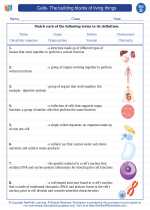Astronomy
Astronomy is the scientific study of celestial objects such as stars, planets, comets, and galaxies, as well as the phenomena that occur outside the Earth's atmosphere, including cosmic radiation and the formation and development of the universe. It is one of the oldest sciences, with a rich history of discovery and exploration.
Key Concepts in Astronomy
- Stars: Astronomers study the life cycle of stars, including their formation, evolution, and eventual demise. They also classify stars based on their characteristics such as size, temperature, and luminosity.
- Planets: The study of planets involves understanding their orbits, composition, atmospheres, and potential for hosting life. The solar system, which consists of the sun and the planets that orbit it, is a key area of study in astronomy.
- Galaxies: Galaxies are massive systems of stars, interstellar gas, dust, and dark matter bound together by gravity. Astronomers explore the structure, dynamics, and evolution of galaxies, as well as their distribution in the universe.
- Cosmology: This branch of astronomy focuses on the origin, evolution, and eventual fate of the universe as a whole. It involves studying the large-scale structure of the universe, including the cosmic microwave background radiation and the formation of galaxies and galaxy clusters.
- Celestial Phenomena: Astronomy also encompasses the study of celestial events such as eclipses, supernovae, and planetary transits. Observing and understanding these phenomena helps scientists unravel the mysteries of the cosmos.
Tools and Techniques in Astronomy
Astronomers use a variety of tools and techniques to observe and study celestial objects. Some of the key instruments and methods include:
- Telescopes: Optical telescopes, radio telescopes, and space-based telescopes such as the Hubble Space Telescope enable astronomers to observe and analyze distant objects in the universe.
- Spectroscopy: This technique allows scientists to study the properties of celestial objects by analyzing their light spectra, providing valuable information about composition, temperature, and motion.
- Space Probes: Robotic spacecraft and probes are sent to explore distant planets, moons, and asteroids, providing valuable data about the composition and geology of these celestial bodies.
- Computer Modeling: Advanced computer simulations and modeling help astronomers visualize and understand complex astronomical phenomena, such as the formation of galaxies and the behavior of black holes.
Studying Astronomy
To excel in the study of astronomy, it is important to develop a strong foundation in related scientific disciplines such as physics, mathematics, and chemistry. Key topics to focus on include:
- Physics: Understanding the fundamental principles of physics, including mechanics, electromagnetism, and thermodynamics, is essential for comprehending the behavior of celestial objects and the laws that govern the universe.
- Mathematics: Proficiency in mathematics, particularly calculus and geometry, is important for analyzing and interpreting astronomical data, as well as for solving complex problems in astrophysics and cosmology.
- Chemistry: A basic understanding of chemical principles is valuable for studying the composition of celestial bodies, including stars, planets, and interstellar gas clouds.
- Observational Skills: Developing the ability to observe and analyze astronomical phenomena through practical observations and data collection is crucial for aspiring astronomers.
Additionally, staying updated with the latest discoveries and advancements in the field of astronomy through scientific journals, publications, and online resources is important for expanding one's knowledge and staying engaged with current research.
By mastering these fundamental concepts and skills, students can embark on a fascinating journey of exploration and discovery in the field of astronomy.
.◂Science Worksheets and Study Guides Fourth Grade. Cells- The building blocks of living things
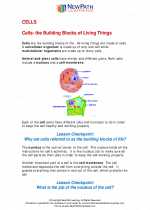
 Activity Lesson
Activity Lesson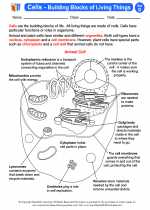
 Worksheet/Answer key
Worksheet/Answer key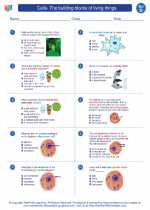
 Worksheet/Answer key
Worksheet/Answer key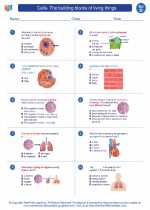
 Worksheet/Answer key
Worksheet/Answer key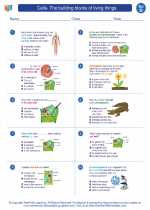
 Worksheet/Answer key
Worksheet/Answer key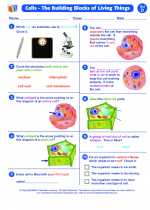
 Worksheet/Answer key
Worksheet/Answer key
 Vocabulary/Answer key
Vocabulary/Answer key
 Vocabulary/Answer key
Vocabulary/Answer key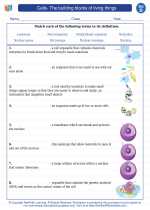
 Vocabulary/Answer key
Vocabulary/Answer key